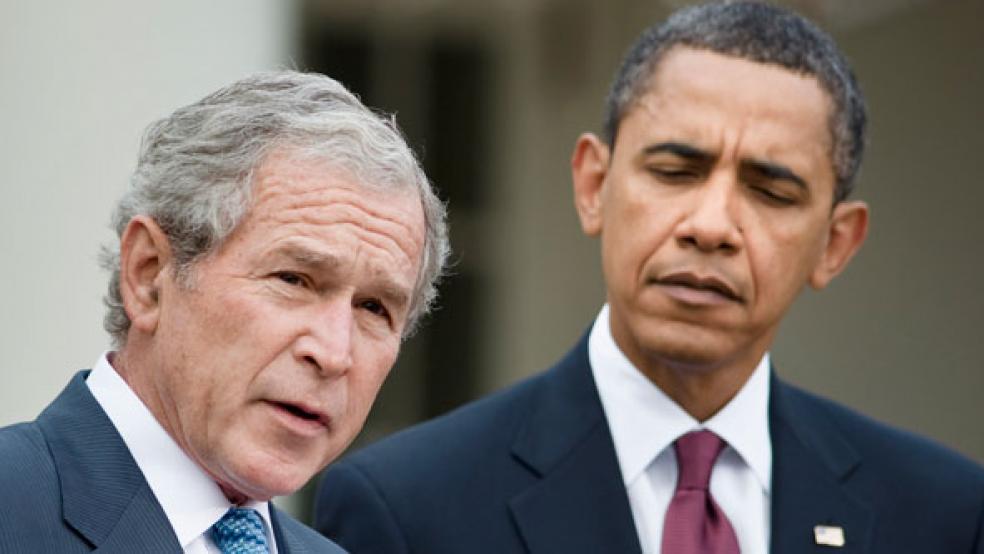A hushed, standing-room only crowd of sympathetic fellow economists gathered in a hotel ballroom in Arlington, Va., yesterday to listen to the Bearded One, aka Federal Reserve Chairman Ben Bernanke, opine on the state of the labor market and reiterate his view that further cuts to the unemployment rate may be harder to come by without a decisive increase in economic growth.
RELATED: Three Analysts Answer Three Big Financial Questions
When economists Alan Blinder and Lawrence Lindsey stepped up to the podium after Bernanke, the collective mood at the National Association of Business Economists Conference lightened almost visibly. Unlike prior speeches, their ability to share their views wasn’t constrained by their positions; both are independent. Blinder, who has served on President Bill Clinton’s Council of Economic Advisors and as vice chairman of the Fed, now occupies an economics chair at Princeton. Lindsey, who had been director of the National Economic Council under President George W. Bush, now runs his own economics advisory firm. Neither man is known to shy away from a controversy or two. And sure enough, both had some firm opinions on what needs to happen for the U.S. economy to get back on a solid growth trajectory once more.
1. Say “buh-bye” to the Bush era tax cuts: This was one topic on which both Lindsey and Blinder agreed. Phase ‘em out, says Blinder; it was clear a decade ago that these were unaffordable, and they’re still unaffordable today. Lindsey agreed on the diagnosis, but suggests a slightly different remedy: Extend them for a year, and then undertake reforms that would eliminate them.
2. Eliminate disincentives to work: Something else that is unaffordable, in Lindsey’s view, is long-term unemployment insurance, at least as it is presently designed. “It’s a lovely thing to do,” he said, but it’s not realistic and creates incentives that can exacerbate long-term unemployment. Why not, he suggests, give beneficiaries a lump sum payment instead?
RELATED: Jobs: A New Look at the So-called 'New Normal'
3. Find new sources of revenue: Government has a revenue issue, says Alan Blinder, and needs to find a way to fix that. He thinks it’s time to put in place a 1 percent to 2 percent carbon tax. (He didn’t offer up any specifics.)
4. Eliminate the income tax: Lindsey favors another kind of tax – doing away with an income-based tax and replacing it with a value-added or consumption-based tax. “Cash is a fact; income is an opinion,” he quipped, pointing out that the measure would simplify the tax code.
Economics may never escape the label of being the dismal science, but that doesn’t mean debating economic issues has to be dull, lifeless or depressing, as Blinder and Lindsey proved.






